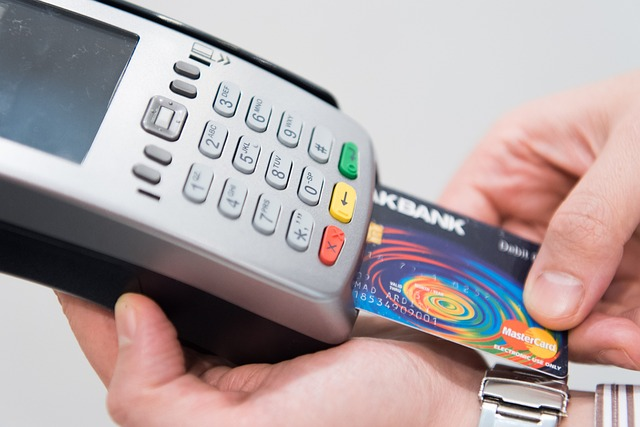What is a First Time Business Loan?

Most small businesses require financing at some point, whether to help with startup costs, fuel growth, or short-term working capital. But for a new entrepreneur or business owner, obtaining a small business loan for the first time can be daunting.
The process is more complex than applying for personal financing, such as auto loans. If it’s your first time going through the process, you’ll typically need to prepare well in advance.
Most small business owners will think of starting with traditional bank loans. While traditionally, that is the starting point for obtaining a business loan, most local and commercial banks are hesitant to lend to small businesses, especially younger ones.
In today’s small business finance landscape, there are many options besides banks and credit unions, typically called traditional lenders. The combination of the internet and new fintech tools has powered the growth of alternative lenders (also called online lenders or fintech lenders).
Most alternative lenders can work with small businesses when the banks say no. You typically won’t need to be in business as long. Some alternative funding products, like merchant cash advances, only require a few months in operation.
What types of small business loans are best for First Time Loans?

In theory, a first-time business loan is no different than any other business loan. What makes it challenging for small business owners is not knowing what business loan options are available and which would best suit their needs.
Let’s look at the different business loan options. Each one serves a different purpose or function, so familiarizing yourself with the available options is an essential part of the process.
Business Term Loans
- Amount: $10k – $5 million.
- Rates: Start at 8%.
- Term: 3 months – 10 years.
- Speed: 1-3 business days.
Term loans are the most common form of business financing, and both traditional and alternative lenders offer them. With a term loan, the small business receives a large sum upfront, which it then repays, plus interest and fees, in fixed payments for the loan term.
Businesses can use term loan proceeds for various business purposes, including working capital, purchasing commercial real estate or equipment, expanding locations, acquiring another company, or refinancing business debt. Some lenders may restrict the use, but it varies.
Many online lenders only offer short-term loans, which must be repaid within 18 months. However, several alternative lenders provide medium- and long-term loans as well.
Business Line of Credit
- Amount: $1k – $1 million.
- Rates: starting at 1% p/mo.
- Term: up to 36 months.
- Speed: 1-3 business days.
Instead of a one-time lump sum disbursement, a line of credit activates your funds as an available credit limit. You can draw from the credit limit as needed and only pay interest on the money you draw.
Most business lines of credit are revolving, meaning the credit limit replenishes as you pay it back, like a credit card. The flexible funding arrangement provides money on demand when you need it.
The drawback to a line of credit is that it’s best to activate it before you need the funds. This type of funding is excellent for covering unexpected costs or emergencies, ongoing projects, and helping smooth out cash flow gaps.
SBA Loans
- Amount: $50k – $5.5 million.
- Rates: starting at Prime + 2.75%.
- Term: 10-25 years.
- Speed: 8 – 12 weeks.
The U.S. Small Business Administration (SBA) oversees the SBA loan program. Businesses cannot apply directly to the SBA. Instead, small business owners must apply to one of three types of financial institutions: commercial banks, credit unions, or alternative business financing facilitators like UCS.
Lenders must apply to the SBA and comply with its standards to become eligible to offer loans. The government agency sets rules SBA-approved lenders must follow, limits what interest and fees they charge, and partially guarantees up to 85% of the loans.
With backing from the federal government, lenders have the security to offer higher borrowing amounts at lower rates and extended repayment terms. SBA loans are fully amortized with fixed monthly payments. Many consider SBA loans to be the gold standard of business financing.
Equipment Financing
- Amount: Up to $5 million per piece of equipment.
- Rates: starting at 3.5%
- Term: 1 – 10 years.
- Speed: 3 – 10 business days.
Equipment loans are like term loans, except they’re specifically for purchasing business equipment. You can use the loan to buy most equipment, from commercial kitchen appliances to construction equipment to computers and office furniture.
The equipment you’re financing becomes the collateral for the loan. If you default, the lender claims the equipment to cover its loss. This is known as a self-collateralizing loan. You might be familiar with other self-collateralized loans, such as mortgages or car loans.
Merchant Cash Advance
- Amount: $5k – $1 million.
- Rates: starting at 1-6% p/mo.
- Term: 3 – 24 months.
- Speed: 1 – 2 business days.
With a merchant cash advance (MCA), borrowers receive a large sum of cash upfront, which is then repaid from a percentage of daily debit and credit card sales. Some lenders use a fixed rate, while others use flexible terms so borrowers only repay what they can afford.
MCAs are among the most accessible but costly business funding options. Since repayment comes from your revenue, MCA funders care more about your sales than traditional lending criteria like credit scores and time in business.
Invoice Factoring
- Funding amount: $10k – $10 million.
- Factor rates: starting at 1% p/mo.
- Term: Up to 24 months.
- Speed: 1-2 weeks.
Invoice factoring, also called accounts receivable financing, allows you to turn unpaid invoices into immediate working capital. The process requires working with a third-party financial institution called a factoring company.
When you factor your invoices, you essentially sell ownership to the factoring company, which issues an advance based on the invoice value, called an advance rate. Your customers pay their invoices directly to the factoring company, which then sends the remainder to you minus its fees.
What are the necessary steps to prepare for a First Time Business Loan?

Preparing for your first small business loan is one of the best ways to ensure you get the funding you need. Here are some crucial steps to take before applying for a business loan.
Check Your Credit Score
As with personal finance, your personal credit score is one of the most essential factors in getting approved for a business loan. Traditional lenders typically require a minimum credit score of 700+, and you’ll need a credit score of 650-700+ for most SBA-approved lenders.
Alternative lenders are more flexible with credit history. Some alternative business loan options only require a credit score of 550+.
Before applying for a loan, check your credit score. As a reminder, you get one free personal credit report per year. If you have bad credit, you can take steps to try to improve your score before applying. Here are some strategies to boost your credit score:
- Pay down debt: Credit utilization refers to the percentage of your available credit you’re currently using. Credit utilization below 30% is considered ideal. If your utilization is higher than that, paying down your debt to get below 30% can quickly improve your score. You can also try opening new credit accounts to increase your available limit but be careful because opening a new account can temporarily hurt your credit score.
- On-Time Payments: Making your payments on time and in full helps build and improve credit. Ensure you don’t miss any payments before applying for a first-time business loan. If your report shows late payments, but you’re currently caught up, you can try contacting the financial company to see if they’ll remove the late payment from your report.
- Keep Credit Accounts Open: The age of your credit accounts makes up 15% of your credit score. Don’t close any of your older credit accounts before applying.
- Credit Mix: Having various types of credit, including credit cards, personal loans, auto loans, mortgages, etc., also helps improve credit scores. Again though, be careful opening new accounts.
Business credit scores also play a role in small business financing. However, many first-time borrowers don’t have enough time in business to have established a business credit score.
Determine How Much Funding You Need & What You Can Afford
The next step is to determine how much funding you need. The amount you need and how you intend to use the funds will largely dictate the type of business loan that meets your needs. Many small business loan applications require you to specify how you’ll use the funds.
Common reasons for a first-time business loan include:
- Hiring costs for new staff.
- Funding a business expansion.
- Initial equipment purchases or replacing existing equipment.
- Rent, including security deposits.
- Financing a commercial real estate purchase.
- Covering working capital or a cash flow gap.
- Purchasing inventory.
- Marketing materials, including branding, signage, online ads, etc.
- Startup costs.
It’s unlikely you’ll need a million-dollar loan for working capital needs. But a commercial real estate loan or equipment loan might require that much.
You’ll also want to ensure you can afford repayment. Business lenders use debt service coverage ratio (DSCR) to determine how much your business can afford to borrow.
Calculating your DSCR is easy. The formula is:
Cash Flow ÷ Loan Payment = DSCR
For example, suppose your monthly cash flow is $4,500. You project the payment on your small business loan (principal and interest) is $1,500. You would divide $4,500 by $1,500 to determine your DSCR:
$4,500 ÷ $1,500 = a DSCR of 3, which is excellent. Most lenders look for a minimum DSCR of 1; a DSCR over 2 is considered ideal.
Create a Budget
Once you know how much you need to borrow and what you can afford, the next step is to create a budget. Your budget should include accurate and realistic financial projections. Including a sample budget with your loan application demonstrates to lenders that you have a plan for the funds and repayment.
Gather Your Documents
A small business loan application often requires significant documentation, especially depending on the loan. While some loans, like a merchant cash advance, might only need a few bank and credit card statements, most traditional loans require much more in-depth financial records.
Prepare the following documents ahead of time:
- Business plan.
- Budget.
- Income statements, balance sheets, profit and loss statements, and cash flow statements.
- Business bank account statements for the last six months (or longer).
- Personal bank statements.
- Business tax returns for the previous 2-3 years (if applicable).
- Personal tax returns for the previous 2-3 years.
- Business licenses, permits, and contracts.
- Lease or deed for business property.
- Resume.
- Government-issued ID.
- Proof of collateral.
How to apply for a First-Time Business Loan:

Follow these steps to apply for a small business loan.
Step 1: Consider Your Needs
Before you begin the application process, take some time to make sure this is the right product for your business needs. Will you be able to use the capital for your desired purpose? Is the repayment structure conducive to your cash flow? Do you know exactly how much funding to request?
Answering these questions ahead of time will make the rest of this process much smoother.
Step 2: Gather Your Documents
Documentation requirements vary depending on the loan you’re requesting. For example, invoice financing will require your A/R and A/P aging reports. A merchant cash advance requires bank statements showing card payments.
Regardless of the type of financing, expect to provide these basic documents during the application:
- Driver’s license.
- Voided business check.
- Bank statements from the past three months.
- Financial statements.
Step 3: Fill Out the Application
You can begin the application process by calling us or filling out our one-page online application. Either way, you’ll be asked to supply the information from the previous section along with your desired loan amount.
Step 4: Speak to Representative
Once you apply, a representative will contact you to explain the repayment terms, interest rates, and terms you qualify for. This will ensure that there are no surprises or hidden fees during repayment.
Step 5: Receive Approval
If approved, funds should appear in your bank account in 1-10 business days, depending on your loan type.
What are the pros & cons First Time Startup Business Loans?

First-time small business loan options have various benefits and drawbacks. Here are the pros and cons to consider.
Pros:
- Provides funding to fuel business operations or growth.
- There are many business loan and lender options.
- Alternative lenders can provide fast funding to solve urgent needs.
- You can begin to build business credit.
Cons:
- You have to pay interest on borrowed money.
- Obtaining a business loan for the first time can be challenging.
- Alternative business loans have higher costs.
- Late payments or defaults can damage your credit.
- Might require a personal guarantee.
Frequently Asked Questions

Here are the most common questions about a first-time small business loan.
Are there First Time Business Loans for Startups?

Startup small business loan options are few and far between, especially for first-time entrepreneurs. However, there are some options available. Some alternative lenders offer startup financing.
In addition, the SBA Microloan was designed for startups. As the name suggests, it’s for a much smaller amount than other loans in the program. SBA microloans only go up to $50,000; the average is $13,000.
Is it hard to get a First-Time SBA loan?

SBA loan approval is less stringent than most traditional bank business loan options but still requires good to excellent credit (650-700+), high annual revenue (usually $250k+), and at least two years in business. However, as mentioned above, the SBA Microloan is intended explicitly for startups and could be easier to obtain as a first-time business loan.
What if I can’t qualify for a Small Business Loan?

If you can’t yet qualify for a first-time business loan, other funding options help support your business while you build your credit and business history. Here are a few alternative options to a small business loan.
Business Credit Cards
It’s typically easier to qualify for a business credit card than a business loan. Most credit card companies don’t require a long time in business, so it’s also an option for startups.
Vendor Trade Credit
Many vendors or suppliers you work with will offer trade credit, typically on net-30 terms. Many vendors approve trade credit for companies with only a few months in operation. With trade credit, you get the supplies or inventory you need on credit and add the amount owed to your accounts payable (A/P). Net-30 terms mean you must pay the invoice within 30 days. When using trade credit, look for vendors that report to the business credit bureaus (Experian, Equifax Business, and Dun & Bradstreet). Building your business credit will help you qualify for a small business loan.
Personal Loans
Getting a personal loan to support your business might be possible if you don’t yet have the business credit history to qualify for commercial loans. It might also be possible to use a personal credit score or your personal savings, if applicable.
However, be cautious about using personal loans, credit cards, or personal savings for business. It’s best to keep your personal and business finances separate.
Equity Financing
Another option to raise capital for your business is with equity financing. In this method, you sell a portion of the company’s ownership stake to an investor for an infusion of capital. The drawback to this method is losing some of your ownership, and most investors will want some influence over the company’s direction, usually with a board seat.
Crowdfunding
Some startups and other companies raise capital through crowdfunding. These microdonations from friends, family, and fans can help you launch a business or product.
First Time Business Loans – Final Thoughts

Seeking a first-time business loan is no easy task. But with the proper preparation and research, you can identify the best loan and lender options for your funding and business goals.
Ensure you check your credit score and take any necessary steps to improve it if your score is low. Determine how much funding you need, how you intend to use the funds, and what your business can afford using the DSCR. Next, create a budget and gather your documents. Then you’ll be ready to talk to lenders and start the business loan process.
Contact us if you have more questions on small business loans or want to apply for a loan. Our loan experts can help you find the best funding solutions for your business needs.











